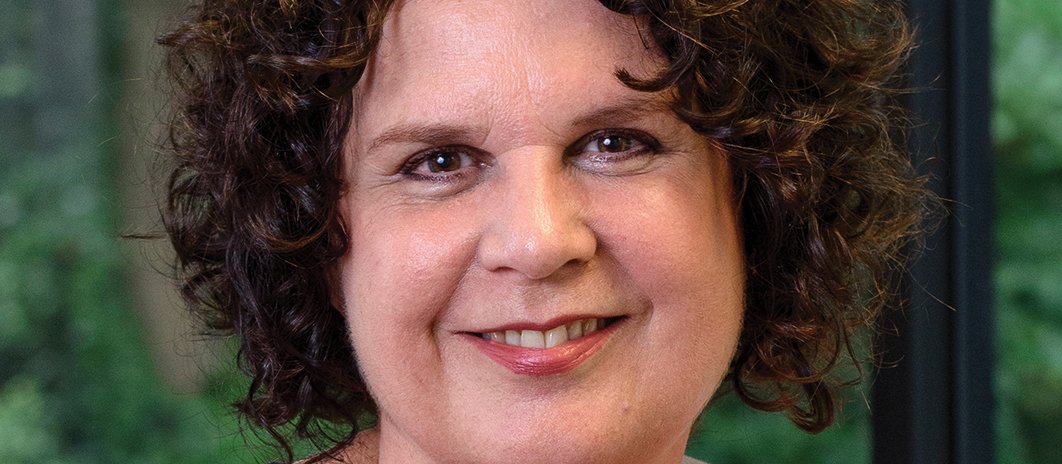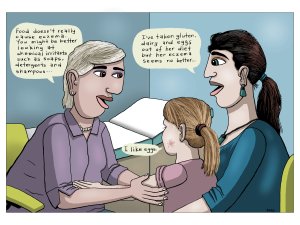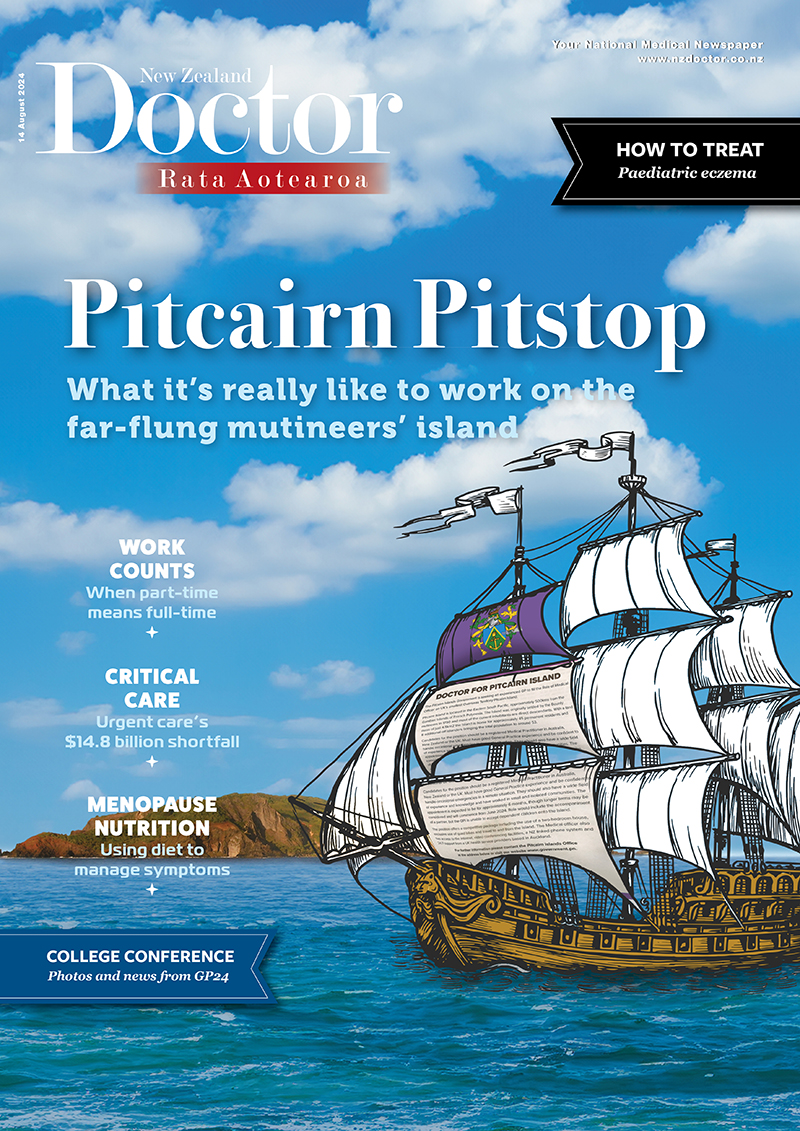Specialist GP Nikki Vadgama provides some tips to make your next paediatric eczema consult easier. She includes a review of new guidelines, resources, websites and medications for paediatric eczema management
Helping patients at end, powerful GP experience
Helping patients at end, powerful GP experience

Some GPs have become ‘absolute champions’ of assisting their patients to die. Amanda Cameron reports
In an ideal world, every GP would be providing assisted dying for their own patient
The number of GPs helping their own patients to end their lives is growing at a “pleasing” rate as word spreads about what a rewarding experience it can be, says the head of New Zealand’s Assisted Dying Service.
There are 130 medical and nurse practitioners on the Support and Consultation for End of Life in New Zealand list, and 38 per cent of them are GPs, says Kristin Good, registrar of the service at the Ministry of Health.
The list is of practitioners available to provide assisted dying for people other than their own patients, but an additional 49 GPs not on the list provided assisted deaths for their own patients in the three months to the end of June – compared with none in the service’s first few months.
“When one of their long-standing patients comes to them and says, ‘I’m wanting to access assisted dying’, they’re actually seeing that as being something that they are prepared to do for their own patients,” says Dr Good, an Auckland-based specialist GP.
“That’s really pleasing because, in an ideal world, every GP would be providing this for their own patients,” she says.
Dr Good expects the number of GPs helping their patients to end their own lives to grow as some “absolute champions” of the service share their experiences with colleagues about how rewarding it is.
She shared, with permission, the words of a GP she contacted to find out how he was, after providing his first assisted death.
The GP, who wished to remain anonymous, wrote in an email to Dr Good: “I’m doing OK. The assisted dying experience was actually quite a powerful GP experience for me, albeit very different to any previous experiences, and the process and final day went well.
“It was helped by the patient and her partner and family, being very supportive of the whole thing and also supportive and respectful of my role in it all.”
Dr Good initially phoned every practitioner after an assisted death to check they were okay, but now sends an email. She follows up with a phone call if she doesn’t hear back.
“It’s work that tends to attract people who are described as compassionate high achievers, and certainly what I see is an incredibly dedicated workforce who are very, very compassionate and really person-focused, who really bend over backwards to meet the needs of the person,” she says.
“But I’m aware there’s a few practitioners who’ve done that at the expense of themselves. They’re particularly good clinicians and I don’t want to lose them. This is the type of person who burns out, so in the background, [the service is] looking after those people.
“No one has ever complained to me about it. No one.”
Dr Good spoke to New Zealand Doctor Rata Aotearoa after the release of her second quarterly report in July.
The number of people applying for assisted dying each month has trebled since the service began, climbing from fewer than 20 in November 2021 to around 60 in May and June.
By the end of June, 400 people had applied for assisted dying and 143 people had had an assisted death.
Of 153 applications that ended before an assisted death, 68 were assessed as ineligible, 23 voluntarily withdrew from the process and 62 died while their application was still in progress.
Dr Good says the service is going to audit those deaths, but an initial review indicates they are the result of people leaving it “extremely late” to make their application.
“It doesn’t seem to be because we were slack and didn’t do what we needed to do,” she says.
It takes four to six weeks to complete an assessment properly, in line with overseas standards, according to Dr Good.
“I think the fastest one to get it, which was in the last few weeks, was 72 hours from their application to their assisted death,” she told New Zealand Doctor on 3 August.
Some 400 people applied for, and 143 people had, an assisted death in the first eight months of the Assisted Dying Service.
The Ministry of Health has published its second quarterly report on the service, covering from 7 November last year, when the End of Life Choice Act 2019 came into force, to 30 June.
Of the initial 400 assisted-dying applications, 363 went on to have an initial assessment completed by an attending medical practitioner, and 270 to receive a second opinion from an independent medical practitioner.
Sixty-eight applicants were assessed as being ineligible for the service for a variety of reasons, and 101 of the applications are still in progress, including 44 deemed eligible for assisted death.
Of the 143 people who have had an assisted death to date, 79 per cent died at home, 9 per cent in aged-care facilities, 8 per cent in DHB facilities and 4 per cent in a hospice.
Twenty-three of the 400 applicants withdrew their application. Sixty-two of the applicants died while their application was in process.
Of the initial 400 applicants:
- 80 per cent are NZ European/Pākehā and 4.8 per cent Māori
- 54 per cent are women
- 76 per cent are aged 65 years or older and only 3 per cent are aged under 45
- 65 per cent have a cancer diagnosis, followed by 10 per cent with a neurological condition, and
- 78 per cent were receiving palliative care at the time of their application.
We're publishing this article as a FREE READ so it is FREE to read and EASY to share more widely. Please support us and the hard work of our journalists by clicking here and subscribing to our publication and website





